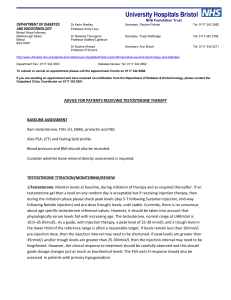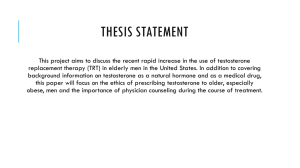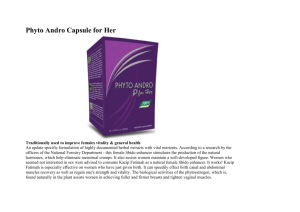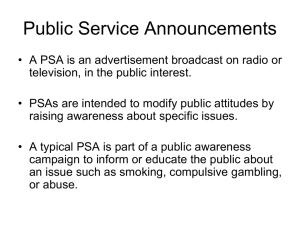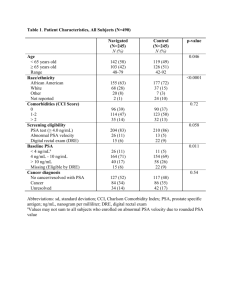SN-Abraham-Urology Q & A
advertisement
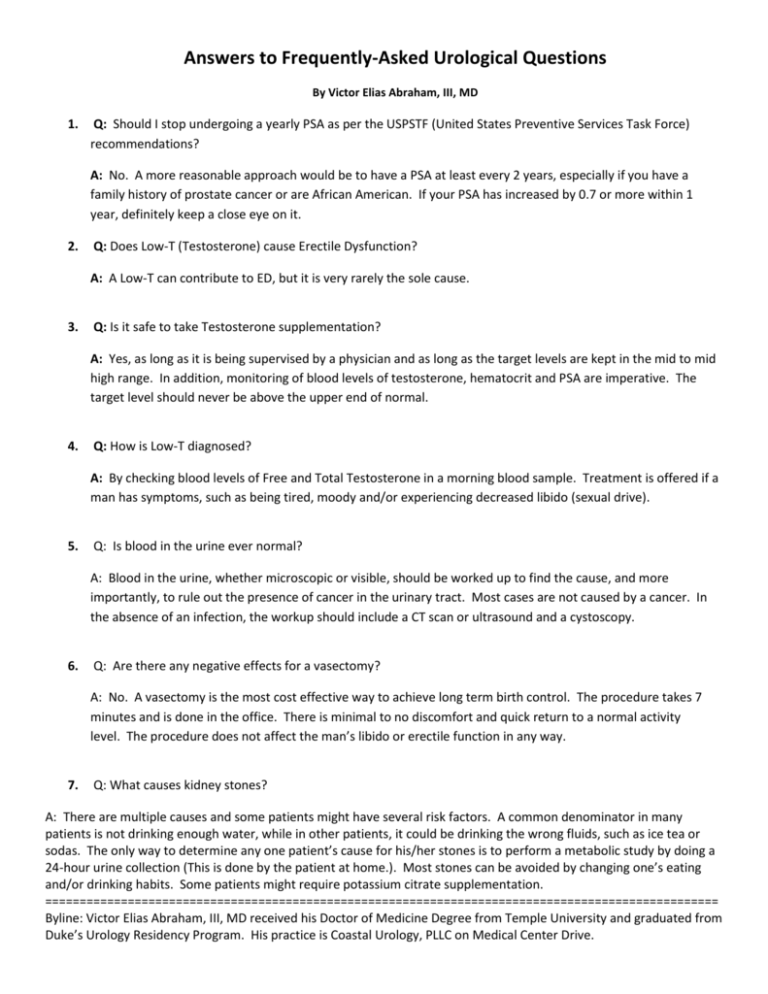
Answers to Frequently-Asked Urological Questions By Victor Elias Abraham, III, MD 1. Q: Should I stop undergoing a yearly PSA as per the USPSTF (United States Preventive Services Task Force) recommendations? A: No. A more reasonable approach would be to have a PSA at least every 2 years, especially if you have a family history of prostate cancer or are African American. If your PSA has increased by 0.7 or more within 1 year, definitely keep a close eye on it. 2. Q: Does Low-T (Testosterone) cause Erectile Dysfunction? A: A Low-T can contribute to ED, but it is very rarely the sole cause. 3. Q: Is it safe to take Testosterone supplementation? A: Yes, as long as it is being supervised by a physician and as long as the target levels are kept in the mid to mid high range. In addition, monitoring of blood levels of testosterone, hematocrit and PSA are imperative. The target level should never be above the upper end of normal. 4. Q: How is Low-T diagnosed? A: By checking blood levels of Free and Total Testosterone in a morning blood sample. Treatment is offered if a man has symptoms, such as being tired, moody and/or experiencing decreased libido (sexual drive). 5. Q: Is blood in the urine ever normal? A: Blood in the urine, whether microscopic or visible, should be worked up to find the cause, and more importantly, to rule out the presence of cancer in the urinary tract. Most cases are not caused by a cancer. In the absence of an infection, the workup should include a CT scan or ultrasound and a cystoscopy. 6. Q: Are there any negative effects for a vasectomy? A: No. A vasectomy is the most cost effective way to achieve long term birth control. The procedure takes 7 minutes and is done in the office. There is minimal to no discomfort and quick return to a normal activity level. The procedure does not affect the man’s libido or erectile function in any way. 7. Q: What causes kidney stones? A: There are multiple causes and some patients might have several risk factors. A common denominator in many patients is not drinking enough water, while in other patients, it could be drinking the wrong fluids, such as ice tea or sodas. The only way to determine any one patient’s cause for his/her stones is to perform a metabolic study by doing a 24-hour urine collection (This is done by the patient at home.). Most stones can be avoided by changing one’s eating and/or drinking habits. Some patients might require potassium citrate supplementation. ================================================================================================== Byline: Victor Elias Abraham, III, MD received his Doctor of Medicine Degree from Temple University and graduated from Duke’s Urology Residency Program. His practice is Coastal Urology, PLLC on Medical Center Drive.


